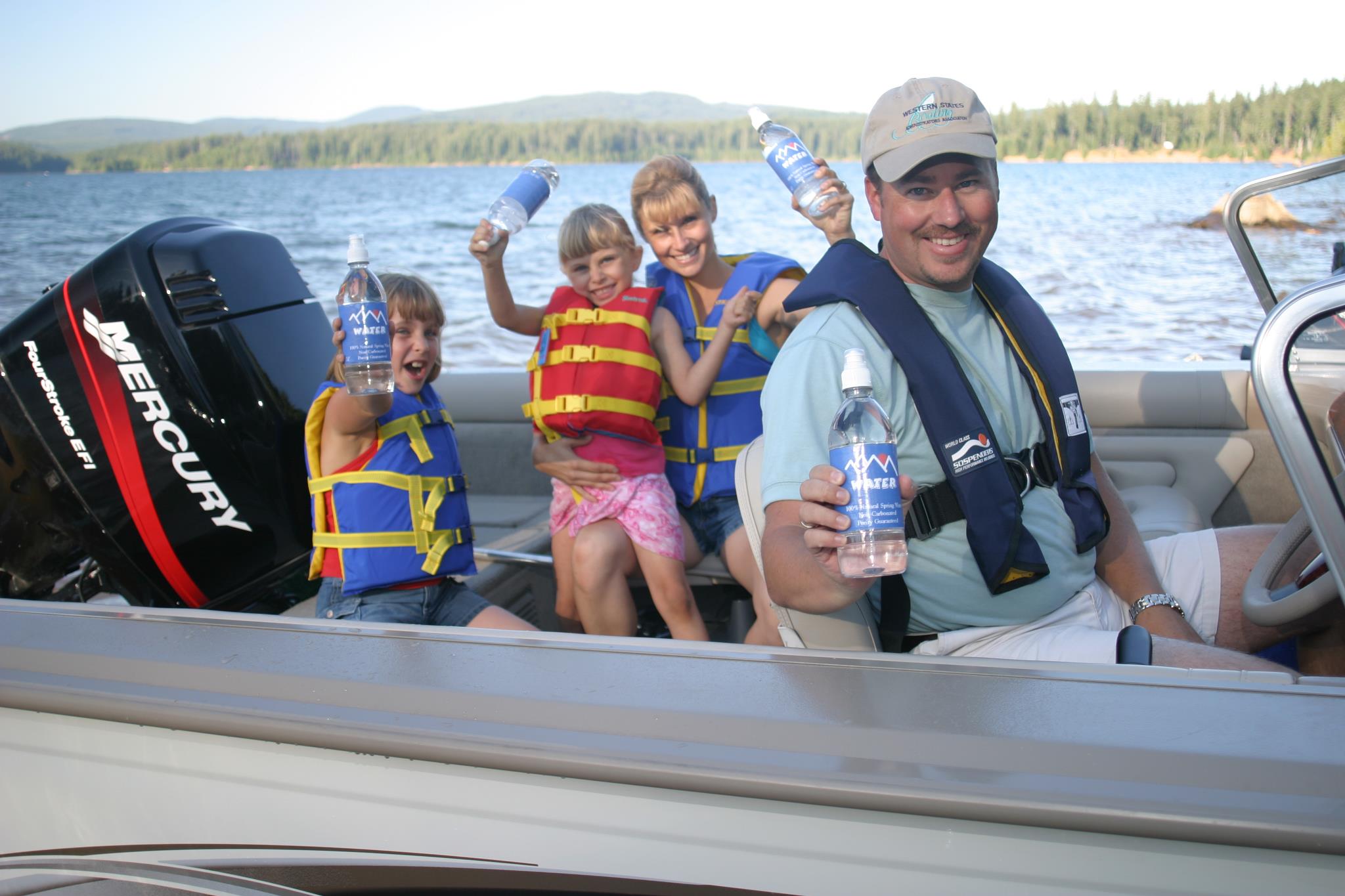The Oregon State Marine Board is dedicated to making the state’s waterways safe and fun for all boaters! They have the noble mission to serve Oregon’s recreational boaters through public education, enforcement of rules and laws, and increasing access to the waterways for everyone!
Ashley Massey, a passion boater and waterways enthusiast is OSMB’s Public Information Officer.
Ashley sat down with us to talk all things boating, her favorite ways to enjoy Oregon’s waterways and how communities in Oregon are embracing river recreation and river fronts.
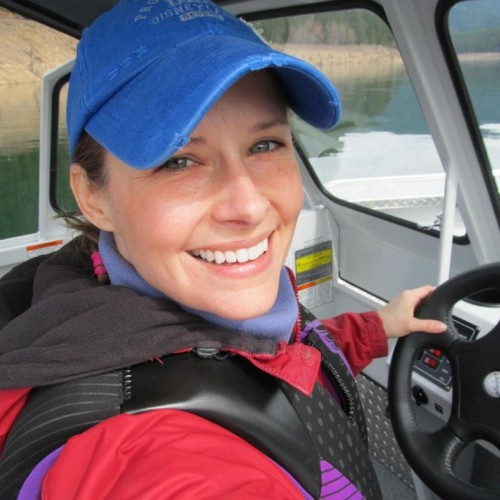
Independence Hotel (IH): What is your position at the Oregon Marine Board, and what about it brings you the most joy?
Ashley Massey (AM): I’m grateful to serve as the agency’s Public Information Officer. What’s not joyful about recreational boating?! Being out on the water inspires, heals, and also offers excitement or tranquility, and depending on my mood or need, I find a place that’s ideal. Oregon has it all in terms of boating opportunities! Regardless of the type of experience people are seeking, I love to share my enthusiasm for safety, building skills, and learning…always keep learning. Waterways are dynamic and always changing. It helps remind me that everything is impermanent. Boating is so liberating and freeing. I love helping people find information they need so they can create memories, bond, and play safe.
Water safety tips from Ashley Massey along with Sean Whalen from Portland Fire and Rescue. Have fun, be courteous and wear a life jacket!
IH: What are some of the Oregon Marine Board’s main goals, hopes, and/or philosophies?
AM: We are an agency that doesn’t just have a mission -we live our mission. Through our programs and mission (we have 38 programs!), we hope to serve the needs of ALL recreational boaters in Oregon: “To serve Oregon’s recreational boating public through education, enforcement, access and environmental stewardship for a safe and enjoyable experience.” Our long term goals include, balancing the safety and opportunity needs of moored and trailered motorized boats and non-motorized (paddle and oar) boats alike in an equitable, sustainable, and inclusive way. We know that through a good facility design, launching and retrieving can be smooth and easy. We know that multiple access points and staging areas with adequate parking help reduce congestion. We know Clean Marinas with recycling programs and best management practices help protect water quality. We know that prepared and educated boaters are safer boaters. We know that boaters care about the environment and want to know what they can do to be good stewards.
Our agency has a funding arm and a regulatory arm and doesn’t receive any state general fund dollars. Our goals are to continue being good stewards of boating dollars by awarding grants to facility owners/operators and other eligible organizations to improve or develop new boating access, expand education and programs offered by others that build boating skills, and contract with 32 county sheriff’s offices and the Oregon State Police for top-notch marine law enforcement to enforce boating laws and help boaters when they need it most.
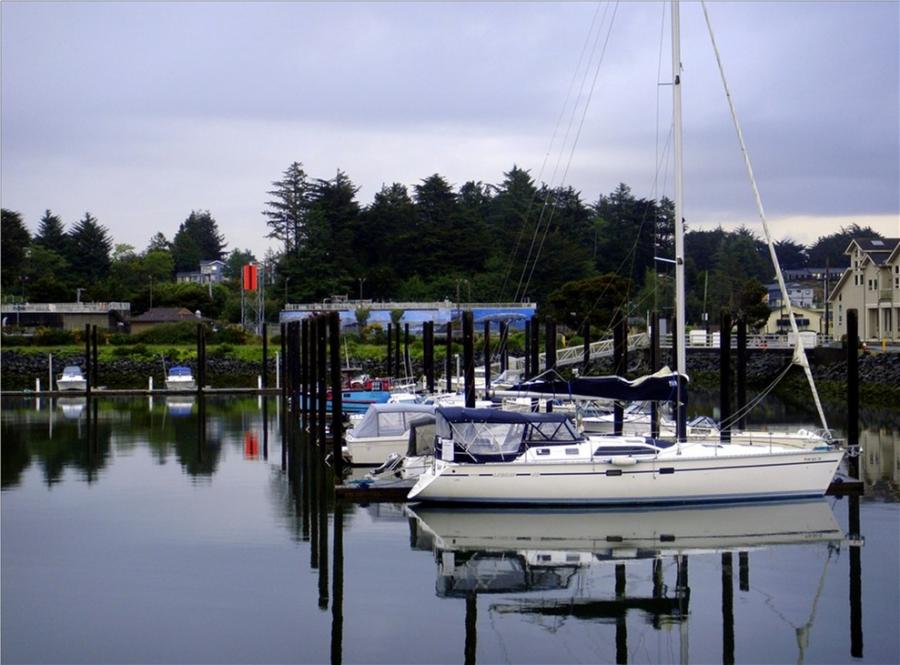
The Port of Bandon, Oregon received it’s clean marina certification in 2014.
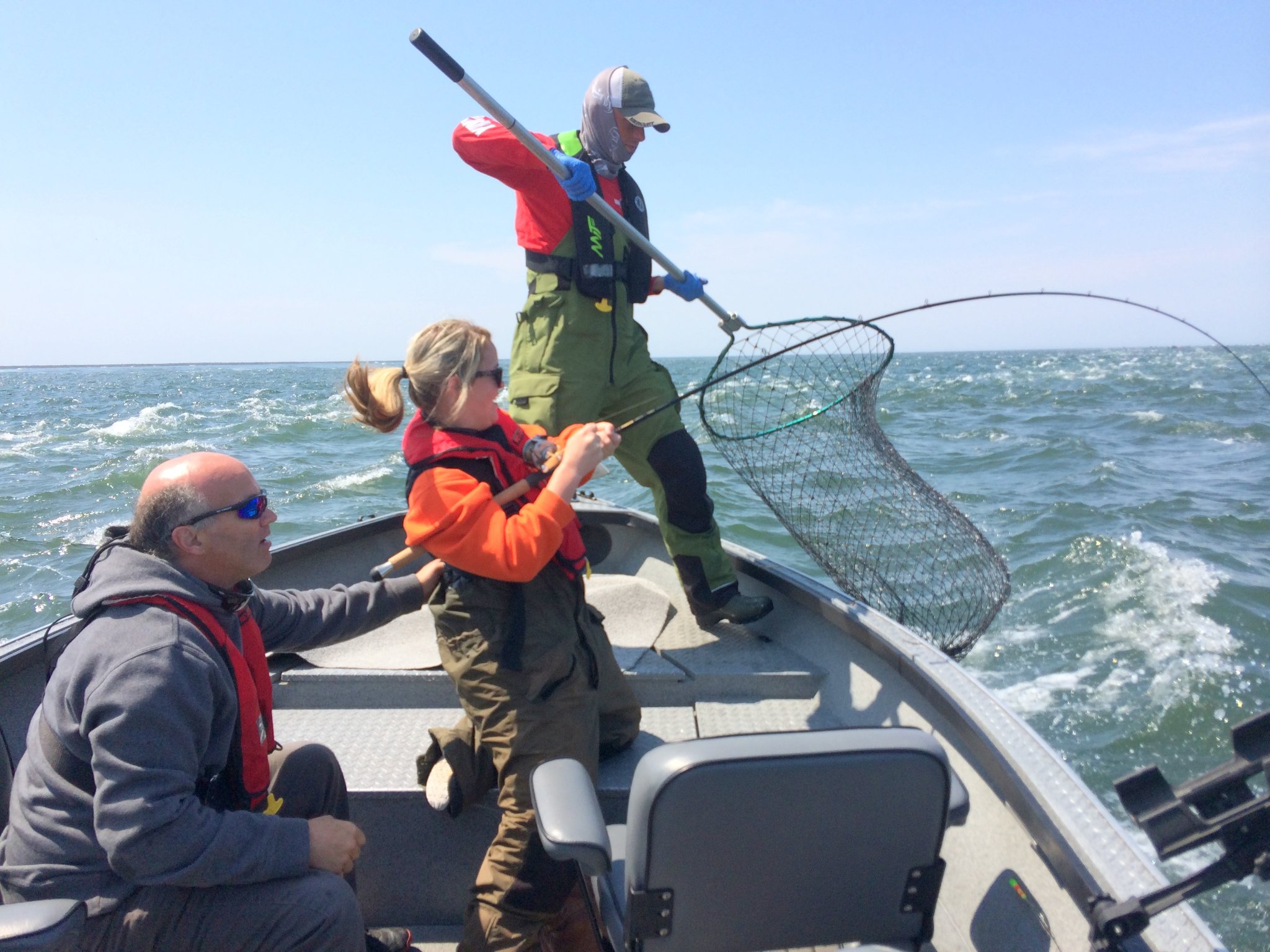
Check out the Marine Board website for resources on launching and retrieving boats, as well as a map of launches across the state.
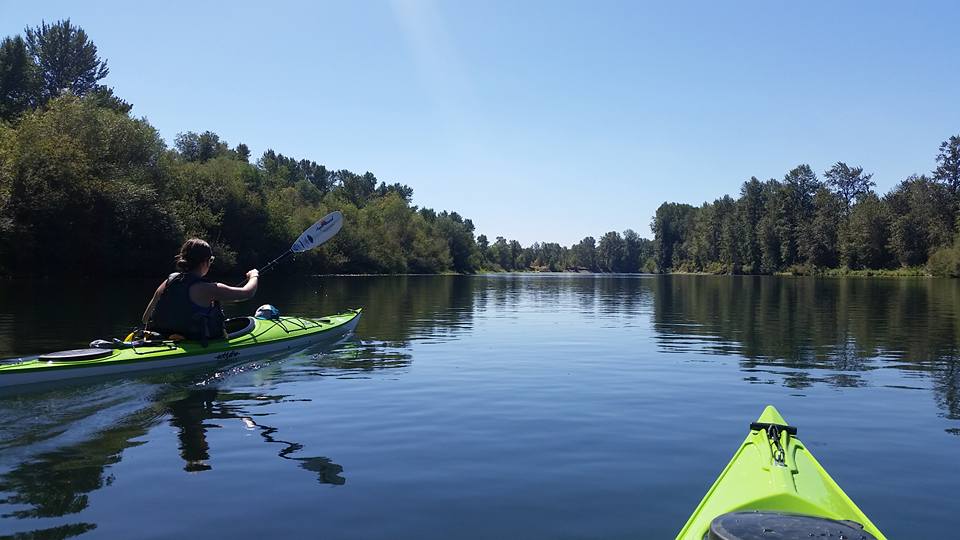
Enjoying a day on the water starts with proper planning and preparation!
IH: With summer in full swing, what is some advice you have for anyone hoping to spend time on the water this year? What are the top 3 things you’d like people to know before starting an aquatic adventure?
AM: #1 – Know before you go! Take time to plan where you’re putting in, where you’re taking out, and have a plan B if an access site is closed or too congested. Use our Boat Oregon Online Maps to find nearby access, reported obstructions, and more!
#2 – Do you have the required safety equipment for the size and type of boat? Life jackets and required equipment. Don’t have a life jacket? Pick a location that has life jacket loaner stations!
#3 – Know your limitations. Many boating-related incidents involve operator inattention and operator inexperience. Start out slow and easy. It takes time to get your sea legs. Skills take time to develop, and those skills begin at the boat ramp. Prep your gear in the parking or staging areas, not at the boat ramp. This will help make launching and retrieving much faster for everyone. If you’re new to boating, find a protected area free from fast changing environmental conditions like strong winds or tide. Go with a registered outfitter or guide or find a local paddling club. If you rent a watercraft (kayaks, canoes, Stand Up Paddleboards, etc.) make sure you’re given a watercraft rental safety checklist that covers boat operations, navigation rules of the road and ask about local boating activity. Just like operating a car, when you’re out on the water, paddle, oar and drive defensively! There are no lines and boats don’t have breaks. Share the water, help someone in need, and be courteous to others.
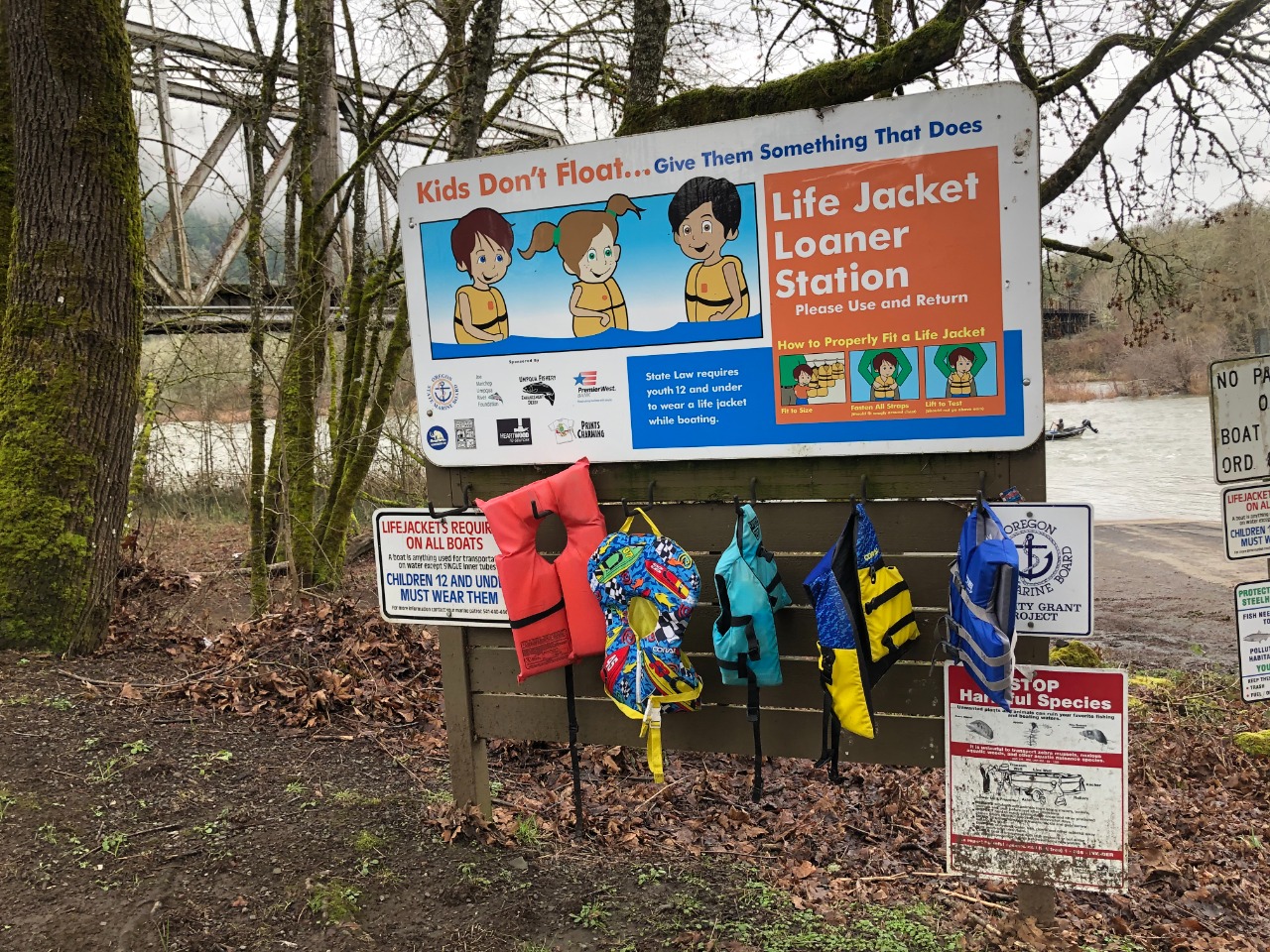
Life jacket loaner stations are based on an honor system and are important in the local communities to support boating and water safety. Don’t forget to retun the jackets after use!
IH: Do you have a favorite swimming spot in Oregon? How about one near Independence, OR?
AM: I’m more of a salty gal, and love salt water! Coastal rivers and bays are where I like to SCUBA dive, crab and boat. But when it comes to swimming, the Willamette River has many alluring locations from Corvallis downstream to Salem’s River Front! I’d NEVER swim without a life jacket out in Mother Nature, though. I’m a good swimmer, but it doesn’t matter in our waterways because they’re cold most of the year fed by snow melt, and the currents can be extremely swift (depending on river volume). With the wrong combo of dehydration, over exertion or exposure, and one uh-oh…is all it takes. So I worry less and have more fun just wearing my life jacket.
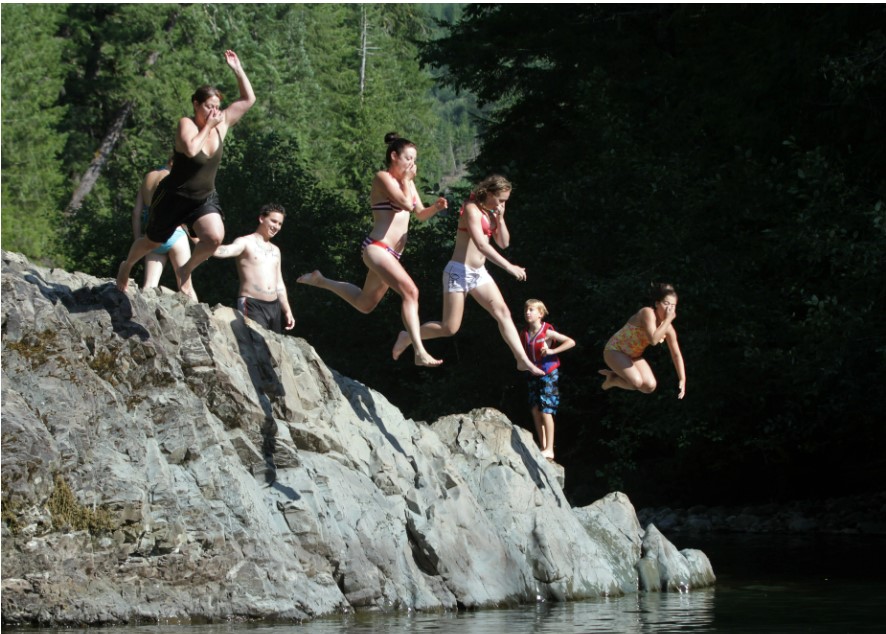
Quartzville Creek is one of the many swimming holes within driving distance of Independence.
IH: What are some safety tips for people perhaps a little newer to Oregon? And what are some resources you’d recommend for them to do further study?
AM: Visit our website to learn about boating in Oregon! Travel Oregon (of course) is another fabulous statewide resource.
There are also regulatory and administrative laws boaters need to know about: boating safety education (required for motorboats over 10 hp), waterway access permits for non-motorized boats 10’ and longer, motorboat title and registration. We’re fully transparent on where boating dollars go. Nearly 90% of the fees go back to boaters for access, marine law enforcement, and aquatic invasive species prevention. Some programs (Mandatory Boating Safety Education and Outfitter Guide programs) are self-supporting through education card and outfitter guide registration. There are also local waterway rules for boating operation. Use our interactive Boat Oregon Map and select the regulations layer for the water body you plan to boat. Slow -no wake zones, exclusion areas, and other rules will display on the map. We offer free paddling courses and a range of education opportunities (classroom and Internet) for motorized boaters.
IH: Do you have any advice for longer travel trips down the Willamette River?
AM: For longer paddling trips, go with a group of people who have experience on the places to go, the things to see, and how to properly plan…and there’s a lot TO plan. Willamette Riverkeeper is a great place to start. They offer tips, paddling itineraries and great history of the river from their Willamette Water Trail Site. For motorized boating, we recently worked with Travel Oregon on a digital story map of different Cruises from Oregon City to the Confluence of the Columbia River. The Boat Oregon Online Maps contain this digital cruising guide in addition to the entire Middle and Lower Columbia Rivers. Just remember that Oregon’s waterways are public and you’ll see lots of different types of boats doing all kinds of water recreation! People swim and fish from boats, both motorized and non-motorized. When paddling, listen for motorized boats and paddle closer to shallower water. Most motorized prop boats need deeper water to safely operate. Motorized boaters need to be vigilant and always keep a sharp lookout for people at the surface of the water and be able to take early action to change course or reduce speed to avoid a collision.
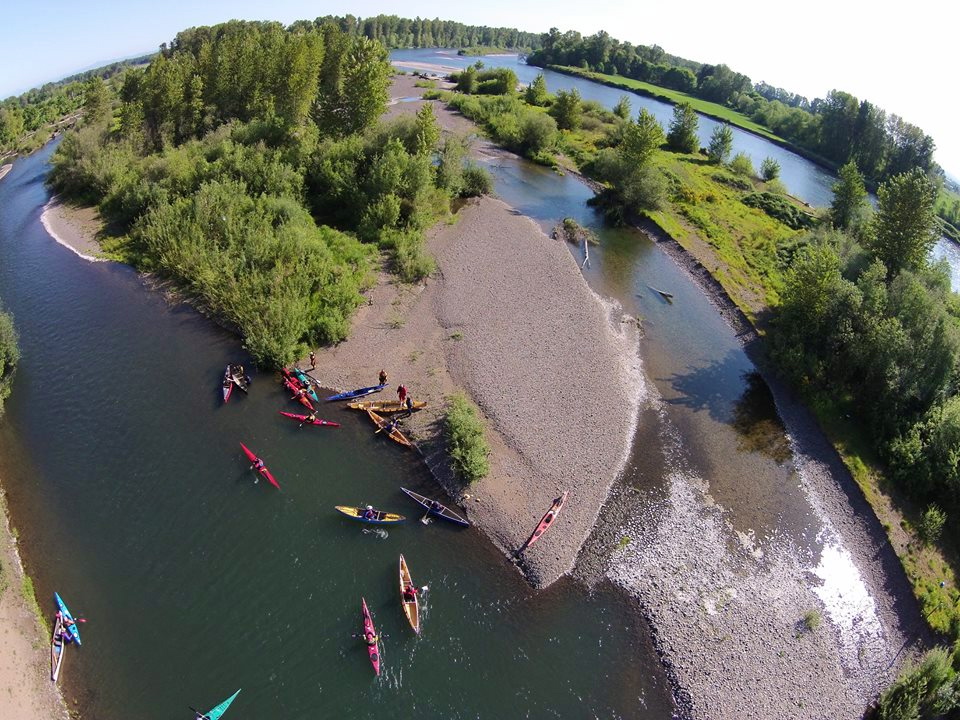
Distinguished as one of only 20 National Water Trails in the U.S., the Willamette River Water Trail is an covers 187 miles of the Willamette River.
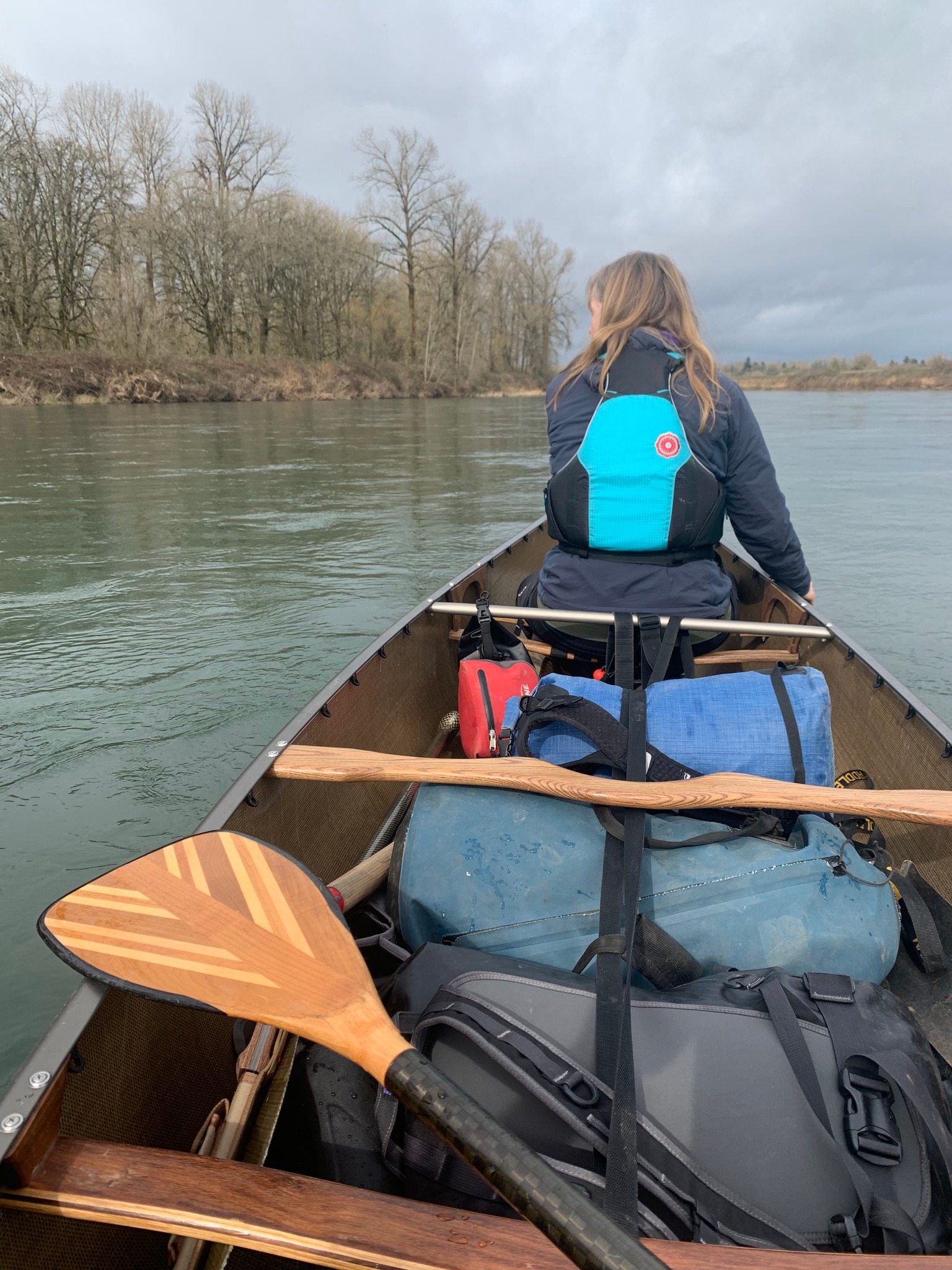
Riverkeeper hosts monthly guided paddling trips to “meet” your river and learn how we can protect and restore the Willamette River.
IH: How does the Oregon Marine Board work with local communities on river access and river safety?
AM: We do what we do -primarily through help with willing partners. Through our Boating Facilities program, we conduct a survey of boaters and hold statewide public meetings to get public input on where boaters want to see their dollars invested for improved access. Not just on rivers, but reservoirs, lakes, and saltwater environments. We call this our “Boating Facilities 6-Year Plan,” which is available on our website. This input is largely from facility owners, providers, and the boating public.
We’re also actively involved in community master planning with city, county and state parks. We also partner with the US Forest Service and Bureau of Land Management on their improvement plans. We also participate in external surveys or provide comments related to master planning on access. We’ll share information on our social media channels when our partners are soliciting for public input on their master planning, too.
Our agency staff is working with the travel and tourism industry to better understand the opportunities boaters and communities are seeking -for safety, fun, economic development, and long-term environmental sustainability. Lots of perspectives are needed when visioning for the future and it’s been invaluable participating in these kinds of groups.
Through our contracts with 32 county sheriff’s offices and the Oregon State Police, we hold an annual Marine Law Enforcement Academy for sworn persons and first responders new to boat operations, as well as drift and jet boat training. Officers are trained in a variety of boats to build their operating skills for their specific water body situations. We’re also inviting organizations to sign a Letter of Commitment (non-profit, government, for-profit, etc.) to become Partners in Safety, and agree to show people wearing life jackets in their advertising or water recreation promotions. Images can influence behavior, and the more people sign on, we can collectively help make wearing a life jacket more socially acceptable.
We welcome participation with any group, organization, agency, etc., looking toward planning and infrastructure investments or safety-related projects around signage, life jacket loaner stations or events.
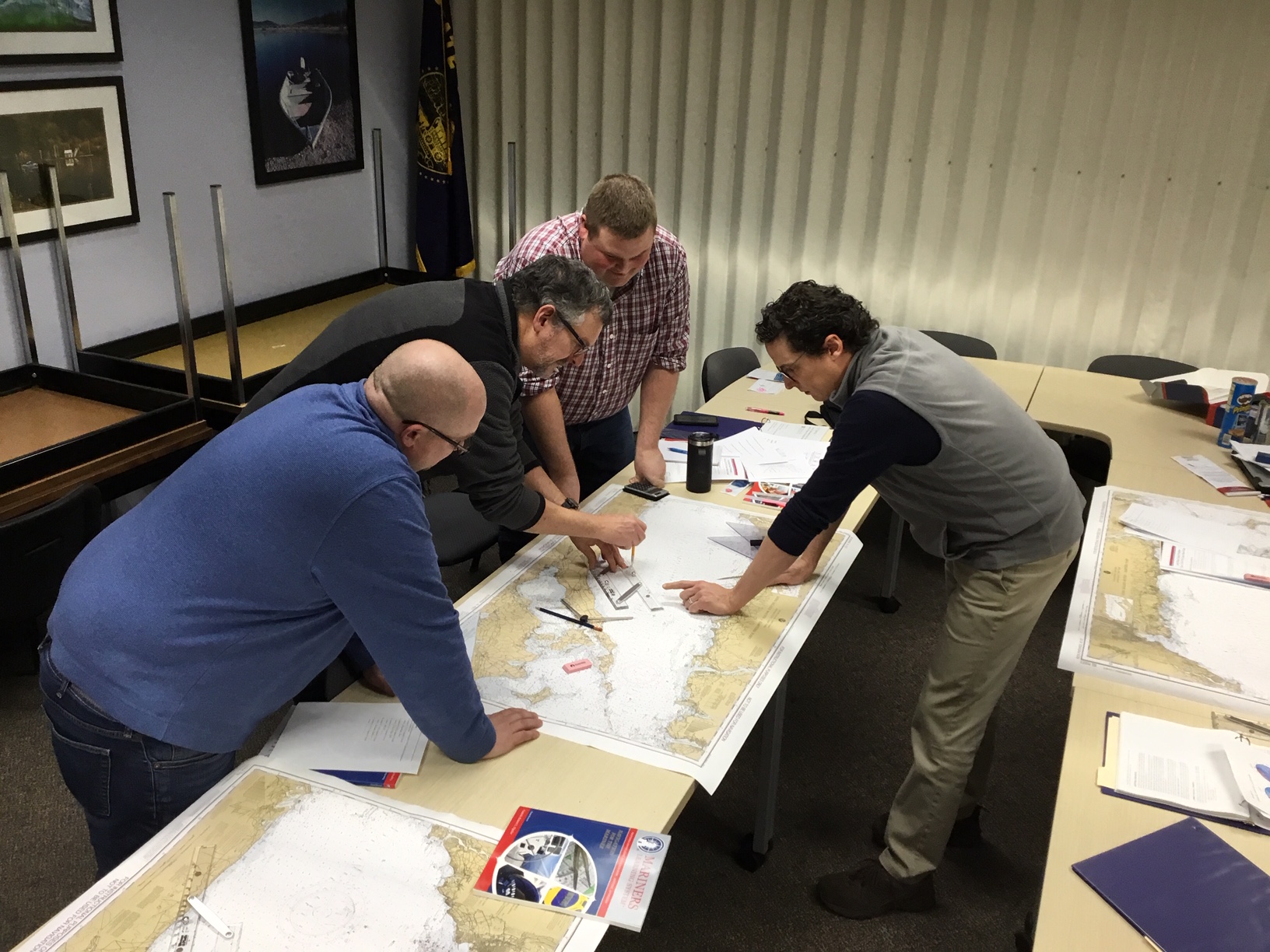
The Marine Board works with community, state, and federal organizations on the conservation, development, care, and maintenance of the state’s waterways.
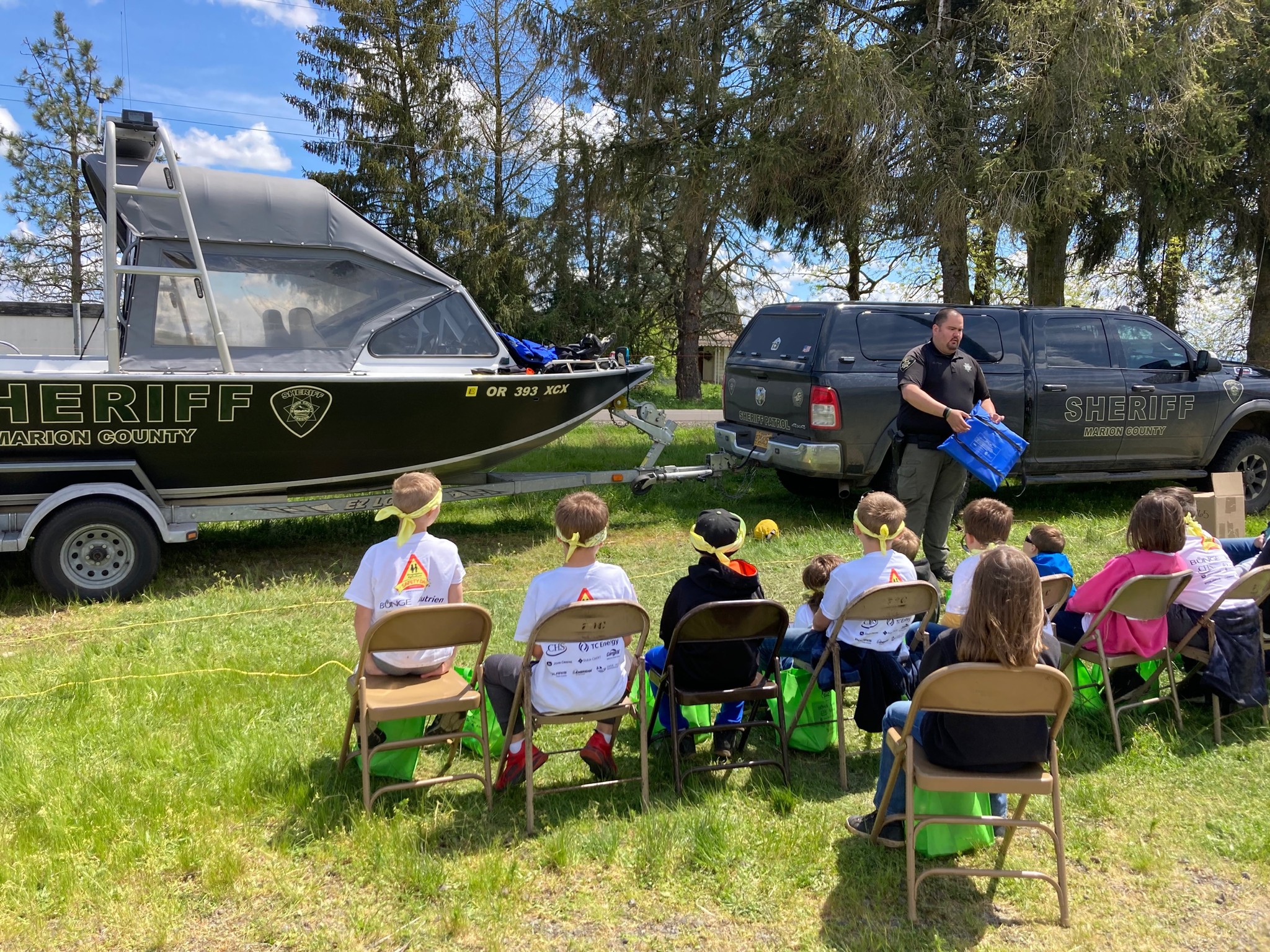
Officers from the Marion County Sherriff Department host a youth water safety class.
IH: Aside from safety precautions, do you have any insider tips for those braving the colder waters of the PNW?
AM: Going boating? Prepare to get wet! If you dress in layers, you’re ready for any change in the weather. Of course, wear a life jacket for the type of activity you’re doing. An offshore life jacket is very different from an inland watersports life jacket, which is different from a whitewater-paddling jacket. Because our waters are cold year-round, it’s important to know how to swim and float (on your back), how to self-rescue (how ya gonna get back in your boat?) and have the ability to call for help (whether a cell phone, marine radio, EPIRB). Print out a float plan and make sure others know where you are going and when you plan on being back. This way, they can call for help if you’re overdue.
IH: What is one piece of equipment everyone should have before going out on the water?
AM: Properly fitting life jacket approved for the activity you’re doing!
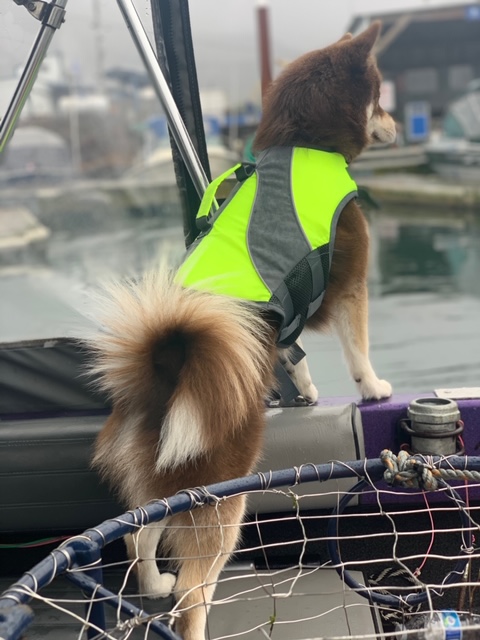
Life jackets are equally important for your four-legged friends!
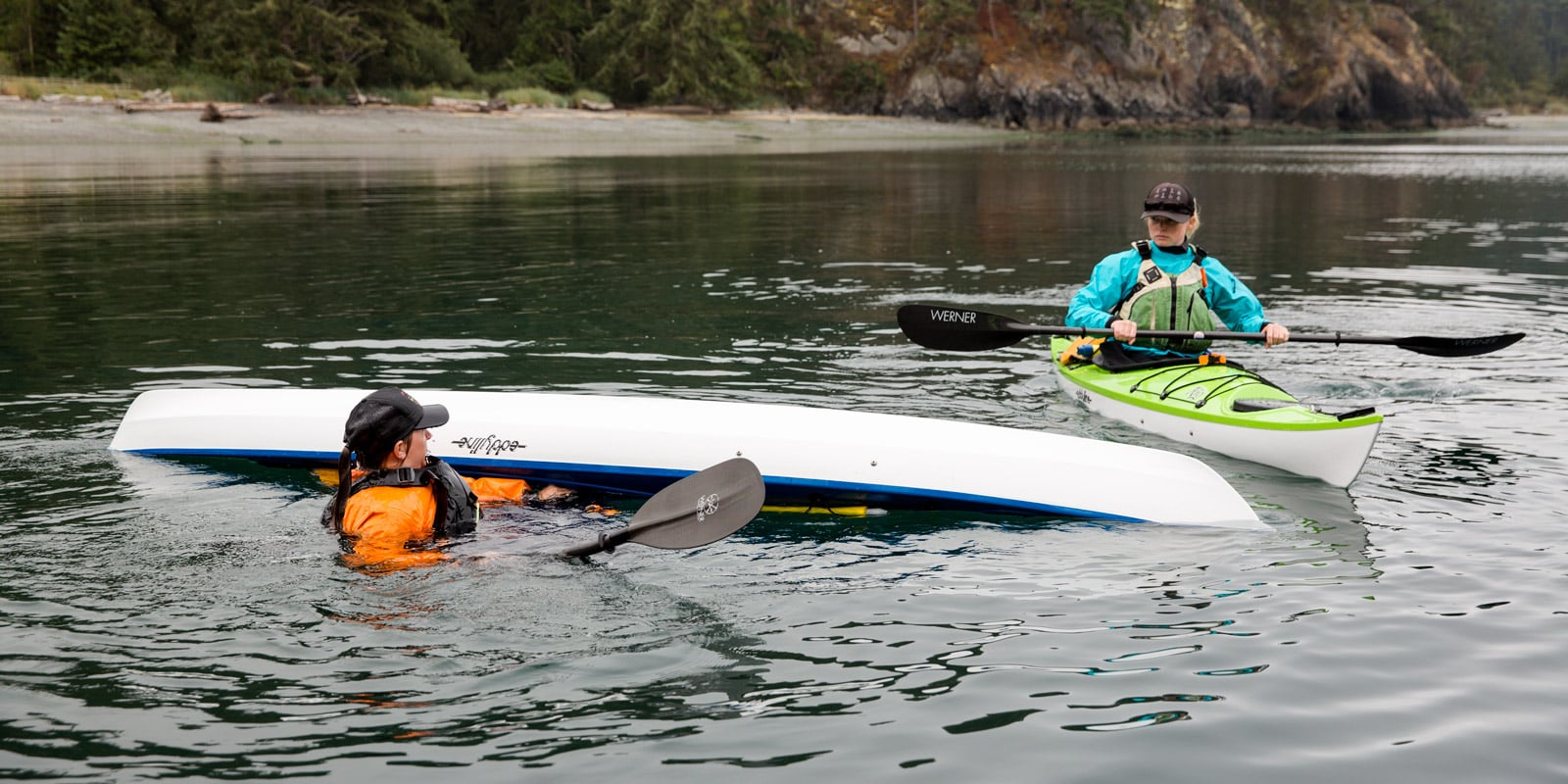
The Marine Board website is a great resource for information and video links to a number of safety topics.
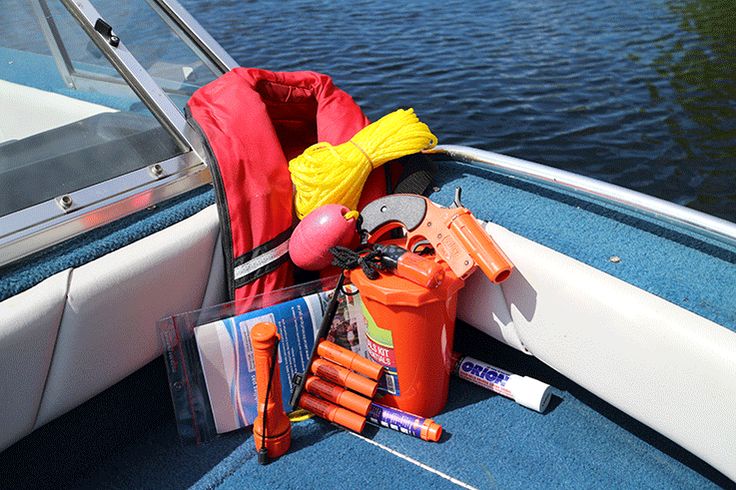
In addition to safety jackets, be sure you have the proper equiment for the vessel, waterway, and activity you are doing.
IH: What is your favorite way to spend a day on the water?
AM: Like many folks, I love hitting the morning early, crack of dawn when the air is cool, maybe a light fog or mist, and not a lot of people launching.
Our family has a prep routine of things to pack in the boat day before. My hubby and I run through the “checklist” of having our crabbing licenses, boater education cards (we both take the helm), enough life jackets, and that all of our other gear like a fire extinguisher and sound producing devices and navigation lights are in good working order. We also make sure there’s plenty of petrol in the boat, the trailer is good to go and the boat securely tied down. We have our drain plug removed (it’s a state law), and include in our “launching” protocol to put the plug back in! When we go out, we like to do a variety of things depending on everyone’s moods. Crabbing tops the list, and then we head upstream to have lunch where it’s more protected from the wind. Sometimes we’ll set anchor and swim, or go farther upstream. We carry lots of water, sunscreen, and have a nice cover in case the wind or conditions get feisty so we can stay out longer. Each trip is always different! It’s always a thrill to commune with nature too. We see river otters, osprey, eagles, cormorants, egrets and herons. Sometimes we get to play with harbor seals who like being social near our boat. The day is always best when our family of four is together, to build more memories!
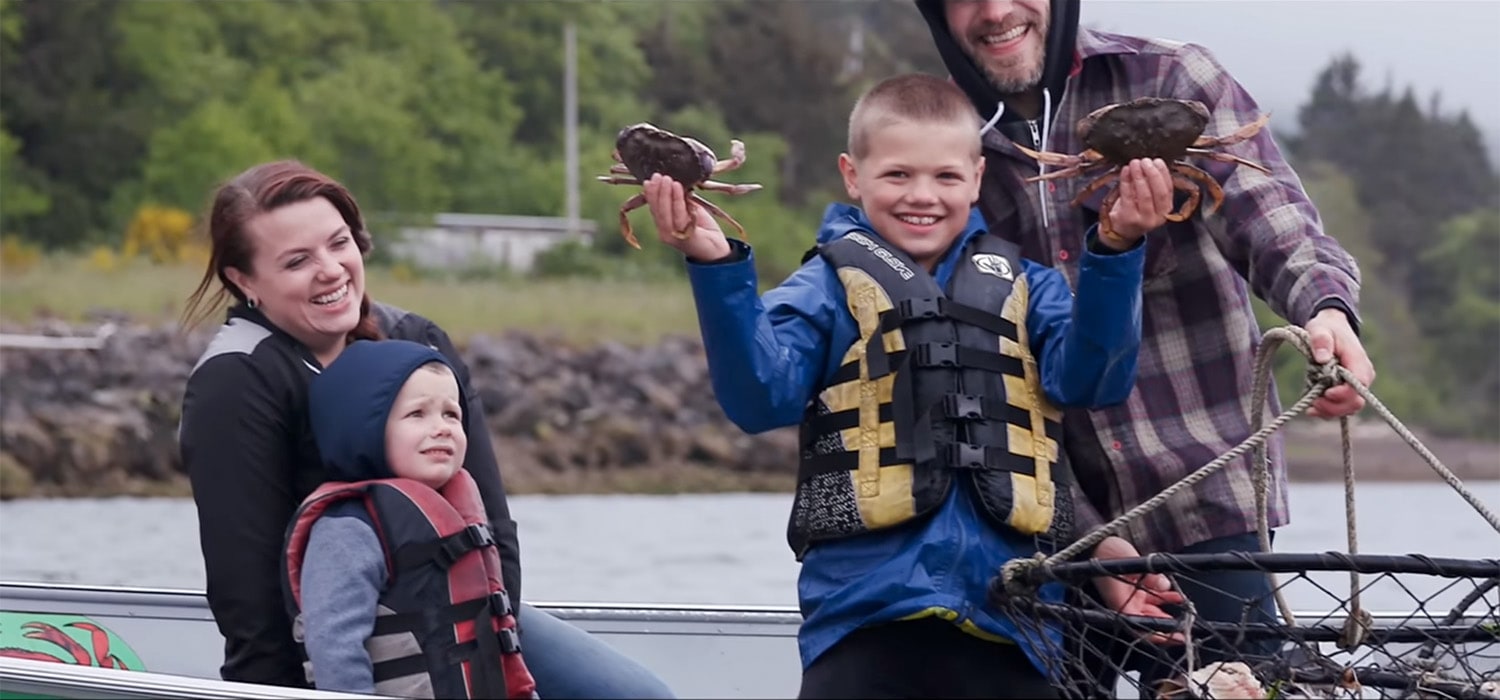
Families enjoy a number of water activities, but crabbing tops the list for many!
IH: Is there anything else you’d like to share with me that I haven’t asked about yet?
AM: Just like any activity in nature, it takes planning, preparation, proper gear, and skill. It’s all worth it! Water works wonders -for the mind, body and spirit.
IH: What is your favorite water themed movie, quote, fact, joke, or song?
AM: JAWS of course! “You’re gonna need a bigger boat.” A funny side note is I saw this movie on my 5th birthday and wanted to be an oceanographer/diver from that point on! I wanted to be like “Hooper.” My first career was as a certified commercial deep-sea diver. At Oregon State, my undergrad focus was oceanography and geology, and I also worked as a research diver. Never met JAWS, but I’m always a fan of bigger boats.
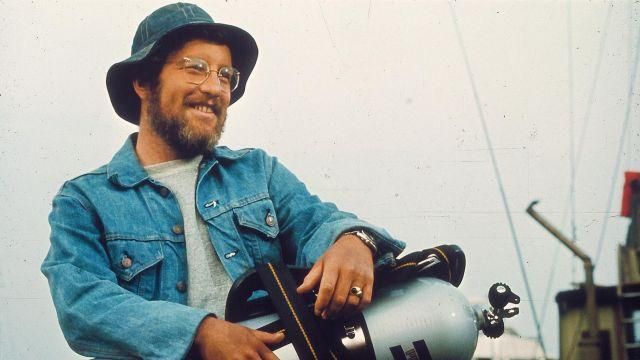
Richard Dreyfuss in his role as the oceanographer Matt Hooper in Jaws.
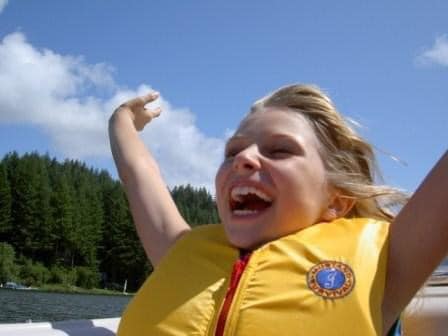
A child that sums up Ashley’s points perfectly – be safe and have fun!
